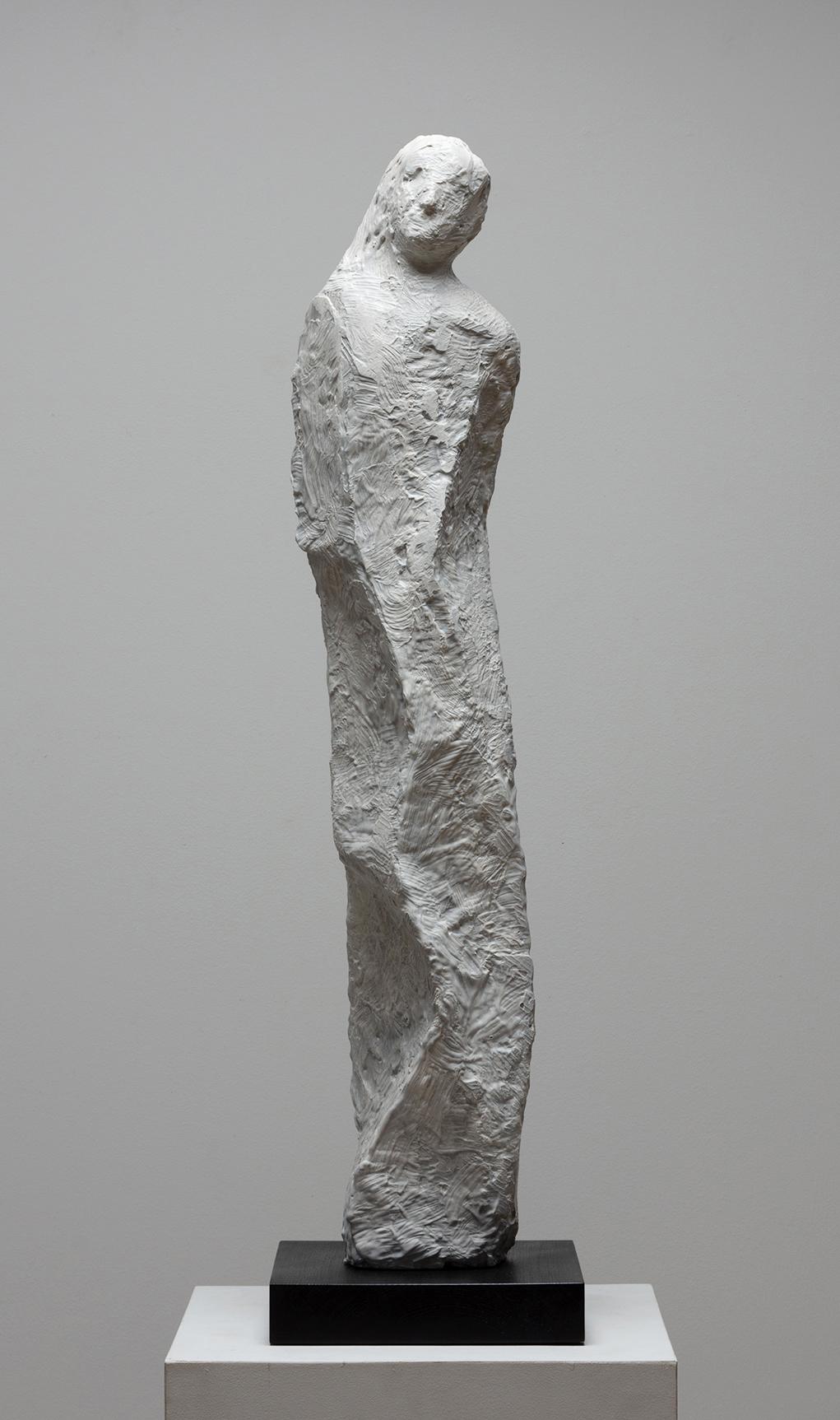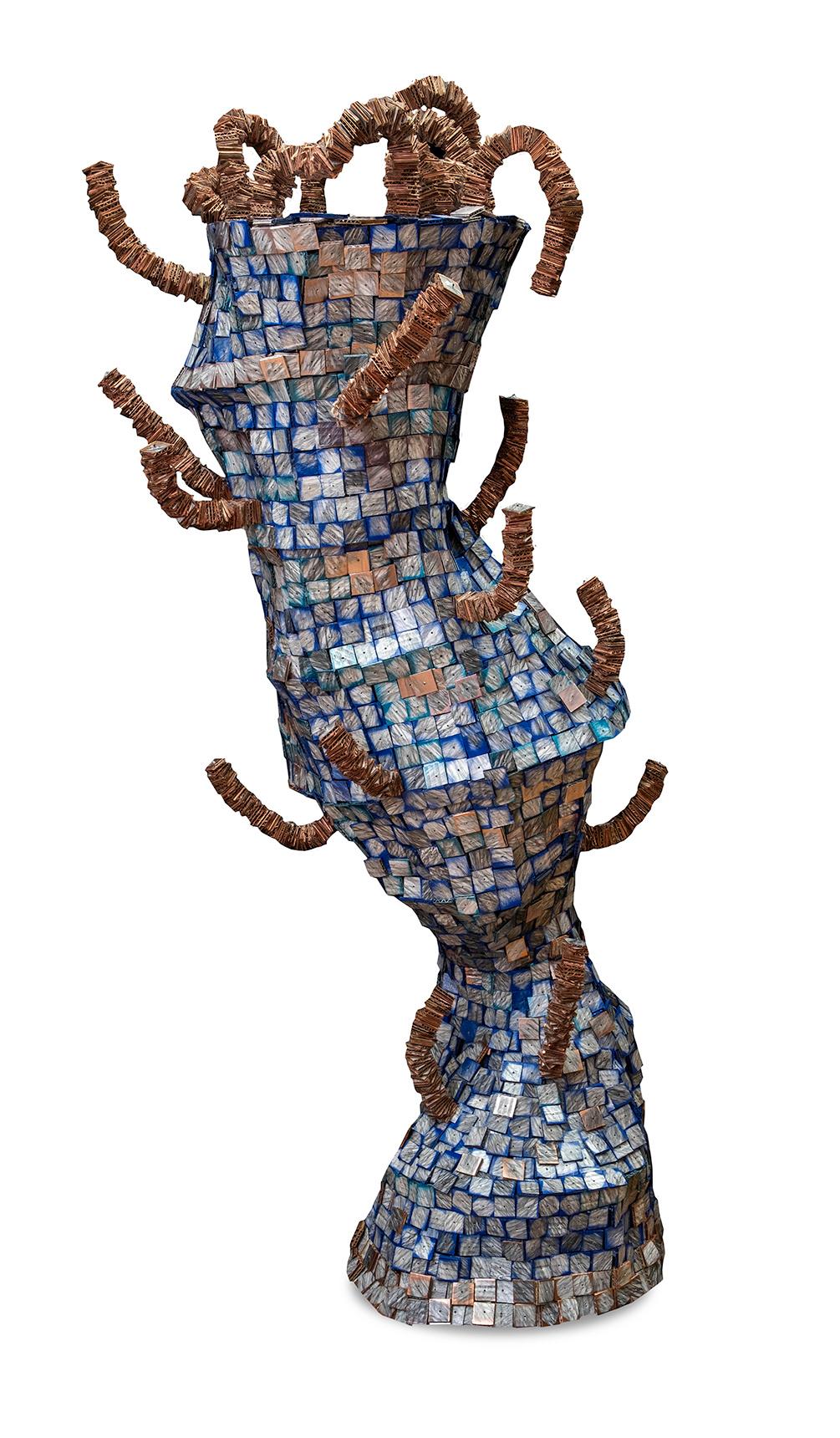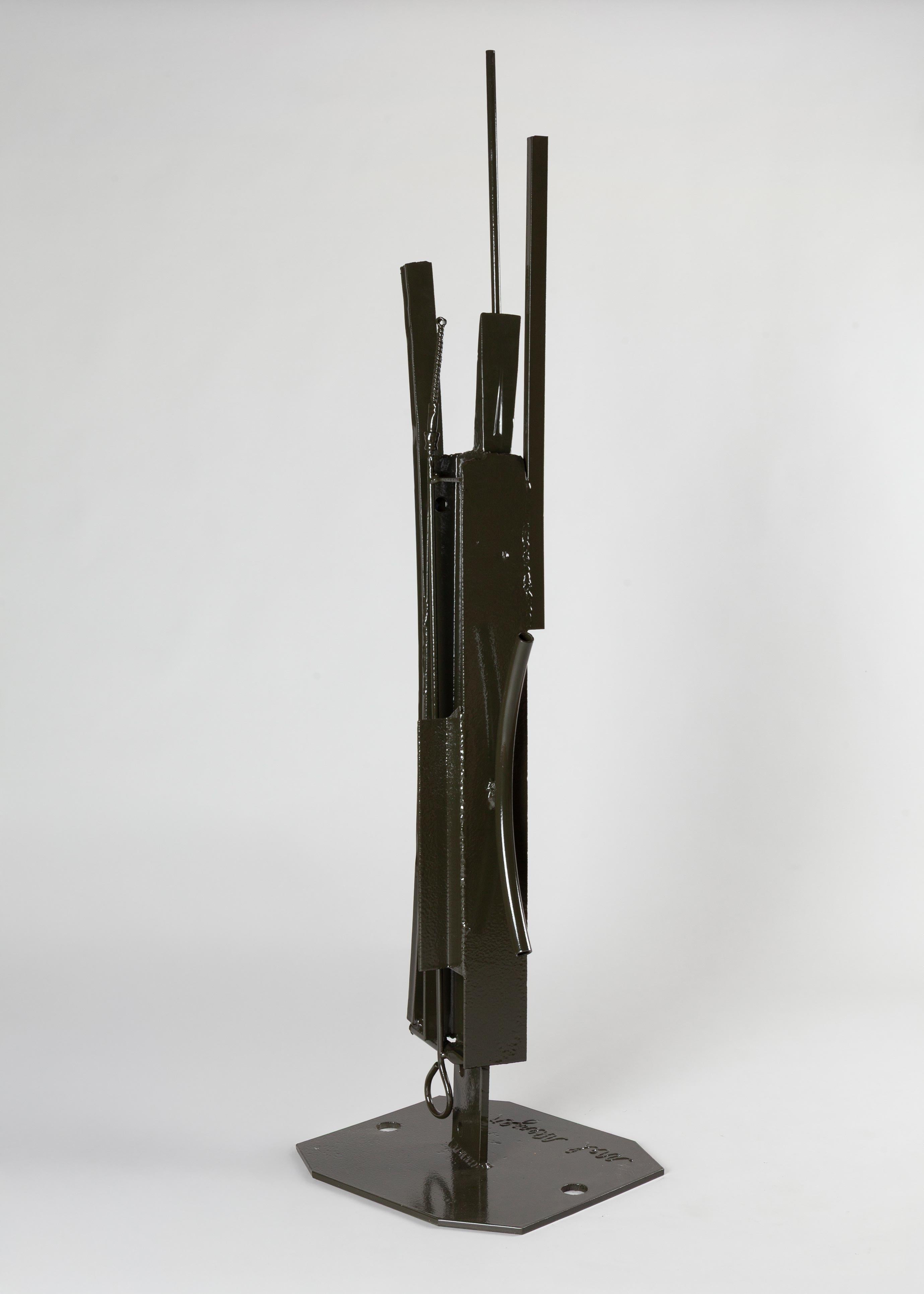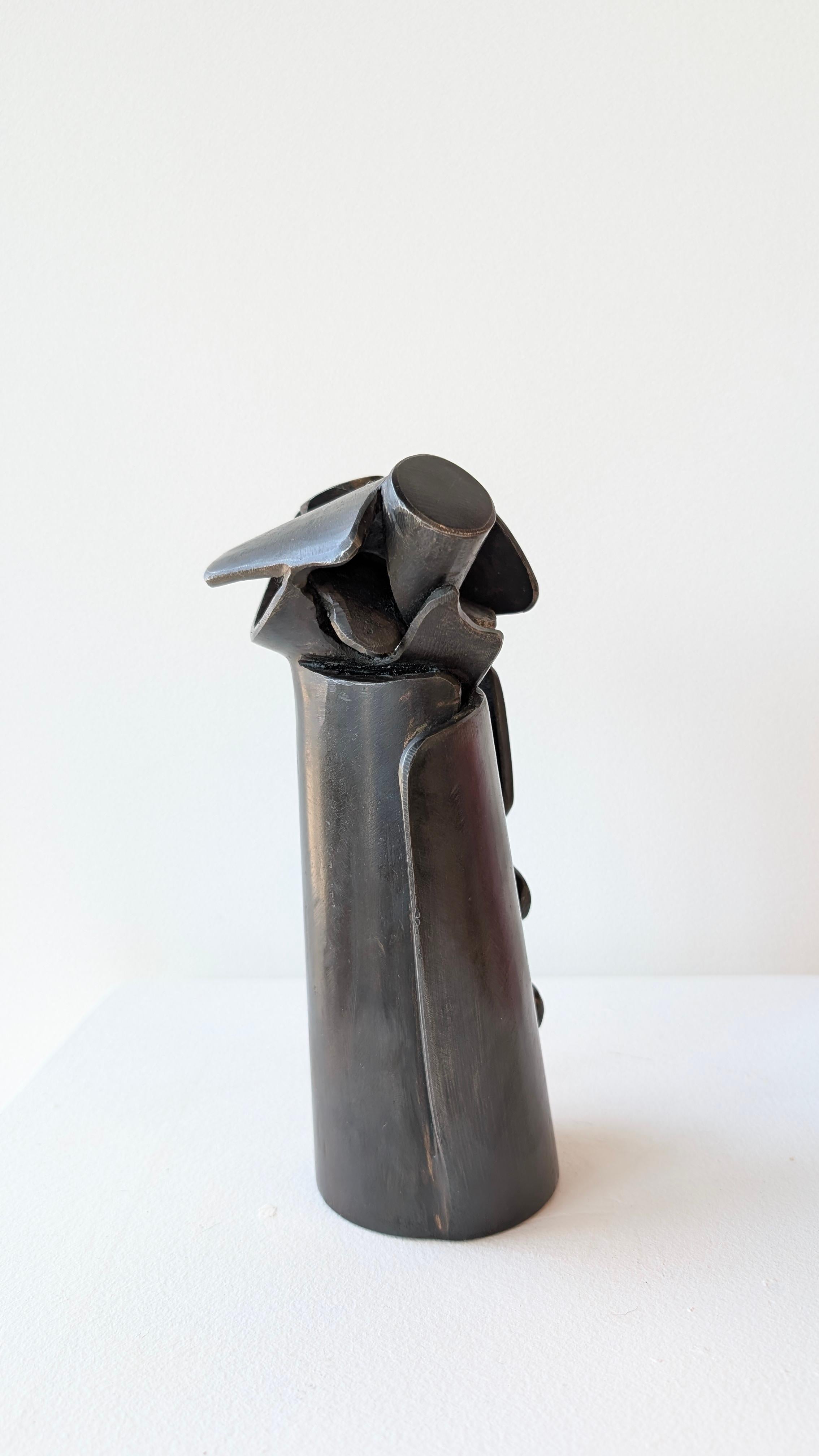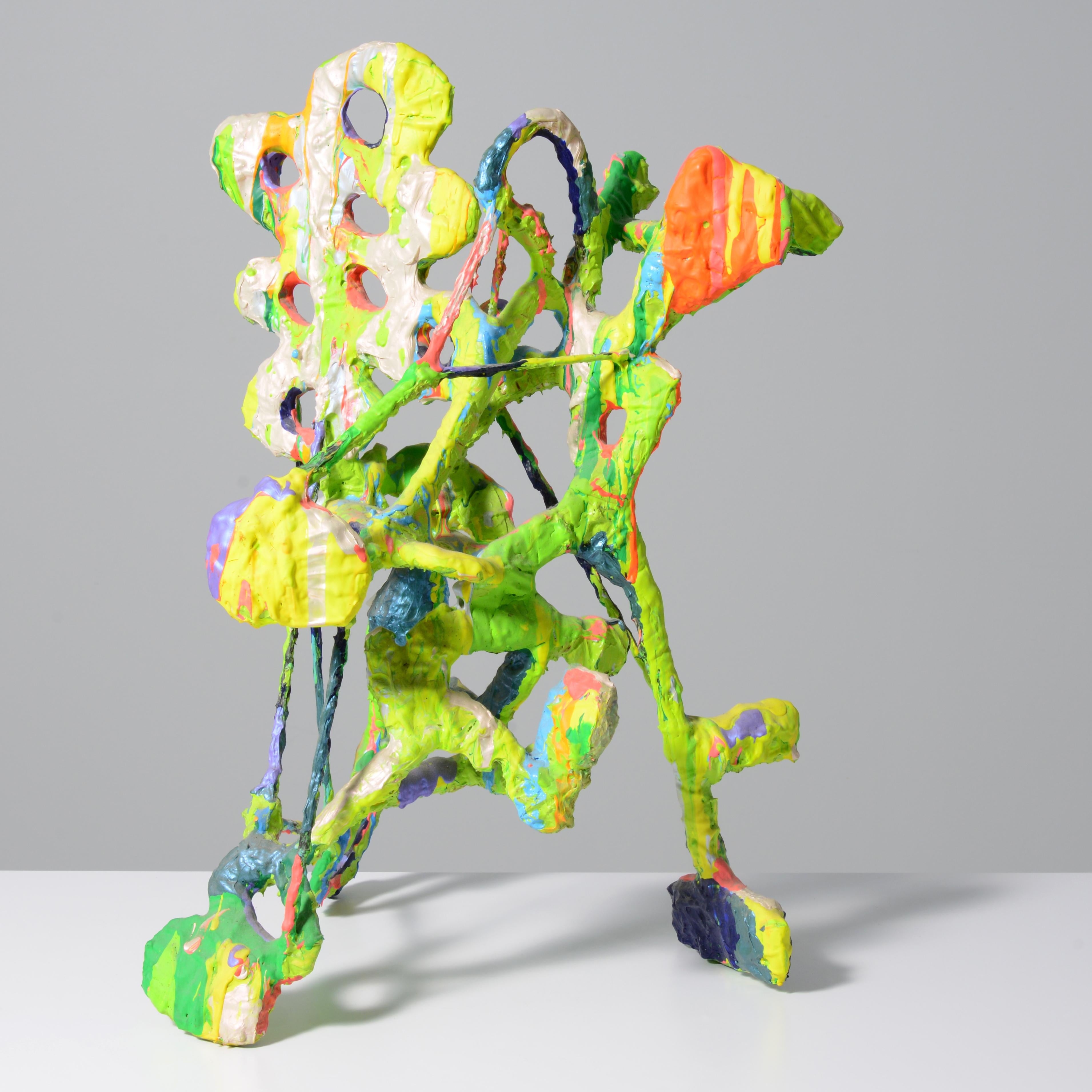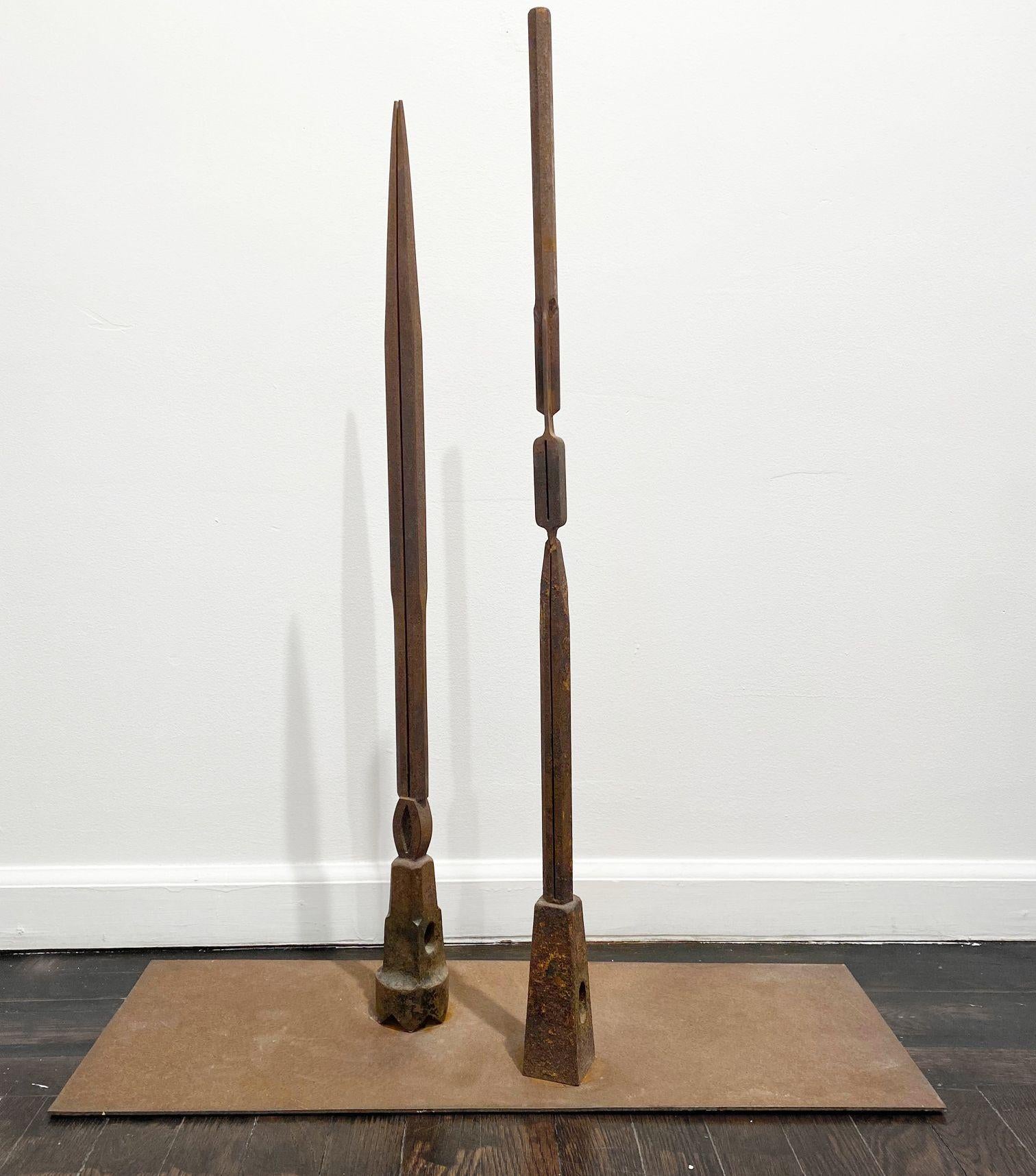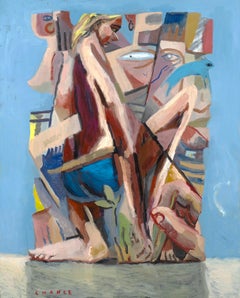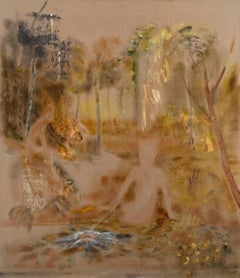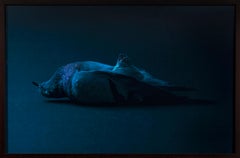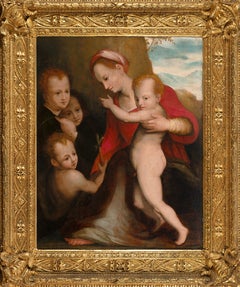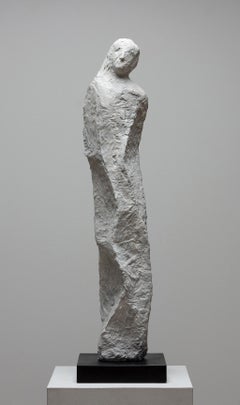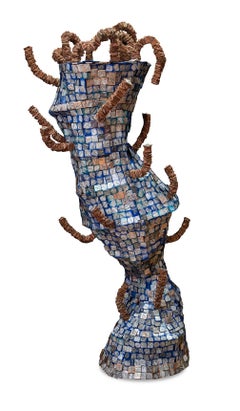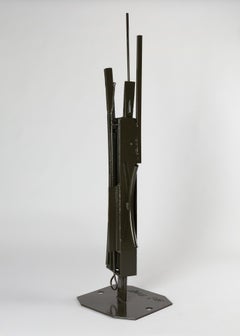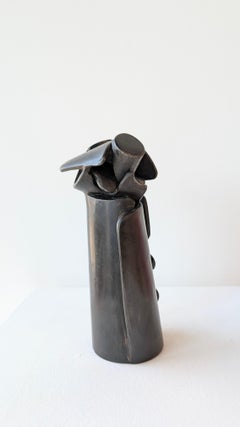Want more images or videos?
Request additional images or videos from the seller
1 of 9
William J. O'BrienCleanse, Fold and Manipulate2007
2007
$1,336.02
$8,016.1083% Off
£1,000
£6,00083% Off
€1,160.25
€6,961.4883% Off
CA$1,886.36
CA$11,318.1583% Off
A$2,070.04
A$12,420.2683% Off
CHF 1,081.19
CHF 6,487.1683% Off
MX$24,749.66
MX$148,497.9883% Off
NOK 13,695.23
NOK 82,171.3983% Off
SEK 12,773.38
SEK 76,640.2883% Off
DKK 8,665.42
DKK 51,992.5183% Off
About the Item
William J. O’Brien (b. 1975)
Cleanse, Fold and Manipulate (2007)
Oil paint, aerosol paint, wood, string, carpet, wax, and other mixed media
136 x 53 x 48 cm.
Provenance:
William J. O’Brien;
Elizabeth Dee Gallery, New York, 2008;
Permanent Collection, Saatchi Gallery;
Private Collection, United Kingdom.
Exhibition history:
Jesuvian Process, Elizabeth Dee Gallery, New York, 19 January-16 February 2008;
Shape of Things to Come: New Sculpture, Saatchi Gallery, London, 27 May-16 October 2010.
Literature:
Saatchi Gallery, Shape of Things to Come: New Sculpture (Saatchi Gallery, 2010), pp. 316-7
An idiosyncratic mass of tangled string rests precariously on a pedestal, the sinews petrified with glue and marked haphazardly throughout with vibrant aerosol paints, daubed with a dark viscous pigment still sticky to the touch. Fragments of wax candles hang from single strands of cotton wicks, triangular cuttings of thick felt are affixed with safety pins, and strips of woolen carpet flap loosely from the form. Further identifiable materials include gauze and steel nails, comprising only a part of the extensive and indeterminate mixed media used by O’Brien. Cleanse, Fold and Manipulate takes its name from the 1987 studio album of Canadian electro-industrial group Skinny Puppy, whose songs on the AIDS epidemic and the PTSD of Vietnam War veterans questioned the status quo with an incendiary punk attitude.
The work formerly belonged to the permanent collection of the Saatchi Gallery, London, and formed a central component of the Saatchi 2010 exhibition, Shape Of Things To Come: New Sculpture. It comes recently from the private collection of a leading British collector of contemporary art.
This highly distinctive work subverts the conventions of sculpture to challenge art historical archetypes and the expectations of viewership. O’Brien sends up formal curatorial modes by playfully inverting the pedestal as an enduring symbol of artistic distinction. The defaced plinth supports a deeply abstracted and materially unconventional creation, a mess of materials and forms elevated with considerable irony. The work encourages the viewer to re-examine notions of order and structure, presentation and convention, to arrive at their own understanding of artistic meaning and merit. The carefully sculpted nature of such unconventional media demonstrates the possibility for order amongst chaos, and for meaning to derive from the subjectivity of the creation process.
William J. O’Brien was born in Eastlake, Ohio, in 1975. Living and working in Chicago, he received his MFA from the Art Institute of Chicago in 2005. As a young gay man, O’Brien resolved feelings of isolation through artistic creation, a process of self-discovery which no doubt informed the unconventional perspective typical of his works. O’Brien is known for his interdisciplinary, improvisational approach, often exploring creation and expression through material experimentation. Solo exhibitions have included the Museum of Contemporary Art, Chicago (2014). His works held in public collections include the Art Institute of Chicago, Miami Art Museum, Museum of Contemporary Art (Chicago), and the Hara Museum of Contemporary Art (Japan).
- Creator:William J. O'Brien (1975, American)
- Creation Year:2007
- Dimensions:Height: 53.55 in (136 cm)Width: 20.87 in (53 cm)Depth: 18.9 in (48 cm)
- Medium:
- Movement & Style:
- Period:
- Condition:The work is in good and stable condition, commensurate with the atypical mediums used.
- Gallery Location:Henley-on-Thames, GB
- Reference Number:Seller: William J. O'Brien1stDibs: LU2820215588032
About the Seller
No Reviews Yet
Vetted Professional Seller
Every seller passes strict standards for authenticity and reliability
Established in 2024
1stDibs seller since 2024
- ShippingRetrieving quote...Shipping from: Henley-on-Thames, United Kingdom
- Return Policy
More From This Seller
View AllGreen Shoots
Located in Henley-on-Thames, England
Michael Chance (B. 1987)
Green Shoots, 2021
Oil on canvas
Signed lower left
Titled, signed and dated verso
153.5 x 122 cm.
Provenance:
Michael Chance;
Private Collection, United ...
Category
2010s Cubist More Art
Materials
Oil
Cinder
Located in Henley-on-Thames, England
Joel Tomlin (b. 1969)
Cinder, 2004
Oil on linen
Signed and titled verso
183 x 157 cm.
Provenance:
Joel Tomlin;
MW Projects, London, 2004;
Permanent Collection, Saatchi Gallery;
Chri...
Category
Early 2000s Contemporary Landscape Paintings
Materials
Oil
$3,473 Sale Price
60% Off
Entombment
Located in Henley-on-Thames, England
27. Theo Ellison (b. 1990)
Entombment, 2017
C-type lambda print on paper
Edition 1 of 5
Signed, titled, dated and numbered verso
78 x 120 cm. (within frame)
Provenance:
Theo Elliso...
Category
2010s Contemporary Still-life Photography
Materials
C Print
The Virgin and Child with the Infant Baptist
By Andrea Del Sarto
Located in Henley-on-Thames, England
Florentine, mid-16th century
Circle of Tomaso D’Antonio Manzuoli, known as Maso da San Friano (1536-1571)
The Virgin and Child with the Infant Baptist
After Andrea del Sarto (1486-1...
Category
15th Century and Earlier Renaissance Figurative Paintings
Materials
Oil
$11,356 Sale Price
46% Off
Portrait of an Arab, with pyramids beyond
Located in Henley-on-Thames, England
Central European School, second half 19th century
Portrait of an Arab, with pyramids beyond
Oil on canvas
66.3 x 55.2 cm.; (within frame) 86.9 x 69.9 cm.
Unsigned
Provenance:
Privat...
Category
Mid-19th Century Portrait Paintings
Materials
Oil
Portrait of the artist’s cousin, Gladys Coombs (1899-1963), c. 1920-25
Located in Henley-on-Thames, England
John George Hookham (1899-1972)
Portrait of the artist’s cousin, Gladys Coombs (1899-1963), c. 1920-25
With a figure study verso
Oil on canvas
In an attractive, stylised ‘Lely’ type ...
Category
1920s Post-Impressionist Portrait Paintings
Materials
Oil
$4,542 Sale Price
49% Off
You May Also Like
That Interim of Purpose
By Michael O'Keefe
Located in Dallas, TX
The sculpture is painted cast plaster.
The dimensions are for the painted cast plaster. The black base dimensions are 2 x 10 x 10 inches.
About this body of work:
“Everybody has that feeling when they look at a work of art and it’s right, that sudden familiarity, a sort of...recognition, as though they were creating it themselves, as though it were being created through them while they look at it or listen to it...” ―William Gaddis, "The Recognitions"
“A great deal of my recent work was made during a time when I was reading the great American novel by William Gaddis, "The Recognitions," the most demanding book I’ve ever read. Along the way, I extracted sentence fragments that interested me and I pieced them together to make the titles for the last three years of my work. So, my recent work is linked to Gaddis’ novel through the titles, but also in the theme of “recognition,” which speaks to the nature of my work. I feel my way through various processes until I recognize a possibility―a possibility that is promising in terms of visual dynamics but also in terms of giving a body to some part of my experience. It is my hope that the viewer is compelled to recognize some part of themselves reflected in the work.” —Michael O’Keefe
Michael O’Keefe earned his MFA from SMU and currently teaches at The O’Keefe Studio Center in Richardson, Texas. This sculpture was included in "Recognitions," his fifth solo exhibition at Valley House...
Category
2010s Contemporary Abstract Sculptures
Materials
Plaster, Paint
Used to be Amazon Boxes, Original Abstract Sculpture, 2021
By Sam Silberstein
Located in Boston, MA
Artist Commentary:
During the COVID-19 pandemic I decided to collect boxes from around my neighborhood and repurpose the cardboard material. By utilizing materials that would otherwi...
Category
21st Century and Contemporary Abstract Abstract Sculptures
Materials
Mixed Media, Cardboard
Untitled (3)
Located in Columbia, MO
Brother Mel Meyer (American, 1928 - 2013) was a member of the Society of Mary and artist educator whose prolific output of nearly ten thousand works made him a beloved figure in Midw...
Category
20th Century Contemporary Abstract Sculptures
Materials
Steel
Untitled
Located in Vancouver, CA
Ben McLeod (b. 1948, Aberdeen, Scotland) is a preeminent Canadian sculptor whose over five-decade practice is characterized by a profoundly self-propelled trajectory and the cultivat...
Category
Early 2000s Abstract Abstract Sculptures
Materials
Steel
$1,900
Peter Reginato Sculpture, 28"H
By Peter Reginato
Located in Lake Worth Beach, FL
Artist/Designer; Manufacturer: Peter Reginato (American, b. 1945)
Marking(s); notes: signed; 2006
Materials: resin/plastic over armature
Dimensions (H, W, D): 28"h, 20"w, 14"d (as me...
Category
Early 2000s Contemporary Abstract Sculptures
Materials
Resin
Untitled
By Beverly Pepper
Located in New York, NY
Beverly Pepper
Untitled, 1982-1983
steel and iron
33h x 27.50w x 10d in
Category
1980s Abstract Abstract Sculptures
Materials
Steel, Iron
Price Upon Request
